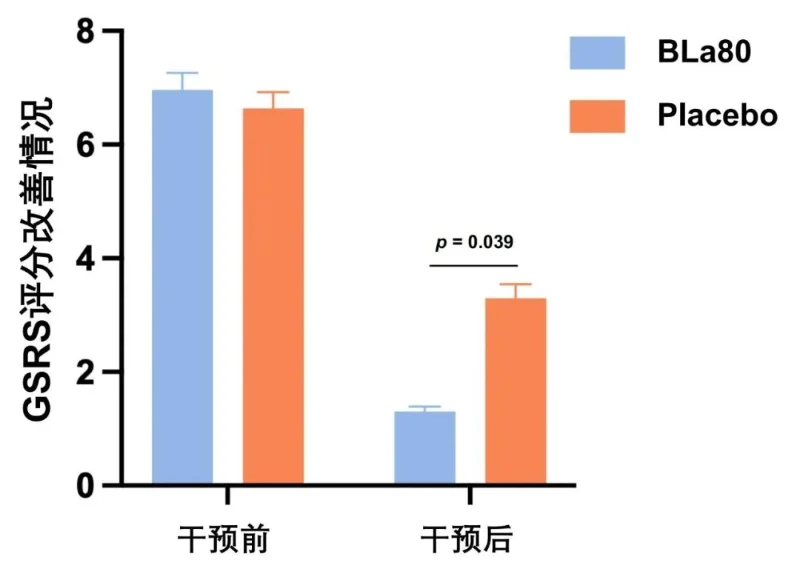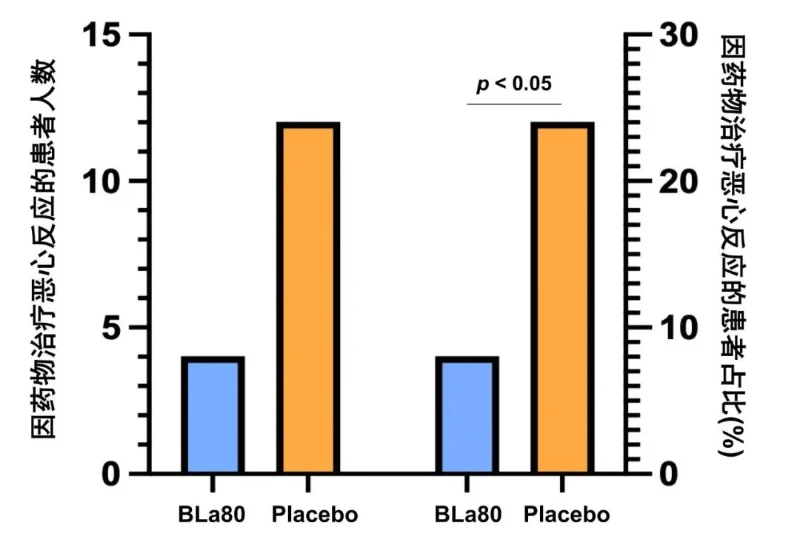Industry Insights
Home > News > Industry Insight > Clinical Study--WecLac® B. animalis subsp. lactis BLa80 Can Effectively Treat Irritable Bowel Syndrome (IBS-C)
Clinical Study--WecLac® B. animalis subsp. lactis BLa80 Can Effectively Treat Irritable Bowel Syndrome (IBS-C)

Clinical summary
[1] To date, there is no effective treatment for irritable bowel syndrome (IBS-C), which is characterized by significant constipation symptoms. Probiotics have been recognized as having the potential to relieve symptoms associated with IBS-C.
[2] The purpose of this clinical efficacy study, conducted by the MicroCare Probiotics Institute in conjunction with relevant healthcare organizations, was to assess and determine the effect of a 4-week intervention of probiotic Bifidobacterium animalis Lactobacillus subsp. lactis BLa80 supplementation on the defecation patterns, symptoms associated with IBS, and quality of life in patients with IBS-C, using a parallel, double-blind, randomized, controlled trial design.
[3] The study demonstrated that Bifidobacterium animalis Lactis subspecies BLa80 alleviated IBS-related symptoms in IBS-C patients, resulting in a trend toward improved bowel frequency and a significant reduction in IBS symptom severity.
Clinical studies of strains
Study Objective:
To determine the effect of Bifidobacterium animalis subsp. lactis BLa80 on defecation, gastrointestinal symptoms, and quality of life in IBS-C, patients
Research Methods:
● Subjects: a total of 180 cases
● Inclusion criteria: age 18-70 years, BMI 18.5-30 kg/m2
● Oral probiotic treatment for 4 weeks
Visits 1-4:
● Fill out research questionnaires daily
● Daily recording of bowel movements (frequency, phenotype, etc.)

Placebo: 2.0g Maltodextrin/Day
Probiotics: 2.0g BLa80 800 billion CFU/Day
Probiotics: 2.0g AF Supplement/Day
● Intervention with Bifidobacterium animalis Lactis subsp. lactis BLa80 resulted in a trend towards improved bowel frequency

During the 8-week clinical intervention period, there was a trend towards increased fecal frequency in patients supplemented daily with probiotic BLa80 compared to IBS patients in the placebo group (p=0.08). For IBS-C patients, irritable bowel syndrome symptoms were significantly reduced when the frequency of defecation was increased, and improved patient anxiety and depression were also shown through questionnaires, and the results suggest that the BLa80 intervention improves the frequency of defecation in patients with IBS
● Bifidobacterium animalis Lactis subsp. lactis BLa80 intervention resulted in a significant reduction in IBS symptom severity

As the duration of clinical observation increased, IBS patients in both the placebo and probiotic BLa80 groups showed a reduction in the degree of IBS symptoms. However, the effect of the intervention with BLa80 was superior to that of the placebo group and was more pronounced at week 4 recordings, which may be a reflection of the rapid improvement of the intestinal flora in a short time after the intake of probiotics in the patients, whereas the severity scores of the IBS symptoms were lower in the BLa80 group at the week 8 recordings, which suggests that the probiotic continued to work and was well tolerated.
Conclusion of the study
Ingestion of probiotic BLa80 supplements during the intervention period led to a significant reduction in IBS symptom severity and a trend towards improved bowel frequency compared to placebo. Overall, all BLa80 probiotics were well tolerated by IBS patients with fragile bowels. Daily dietary supplementation with probiotics may be helpful for IBS-C patients by alleviating IBS-related symptoms, especially those related to bowel frequency and symptom severity.









 Leave a Message
Leave a Message Email
Email Linkedin
Linkedin